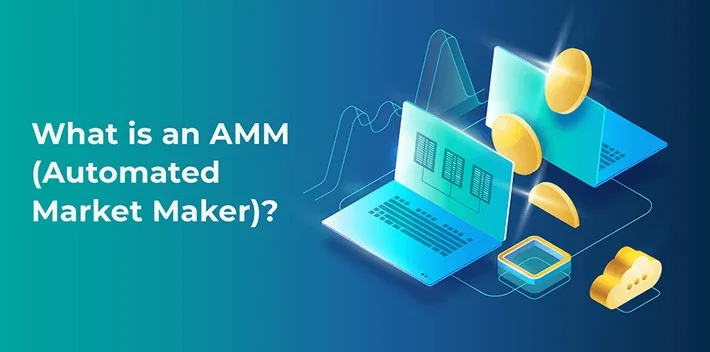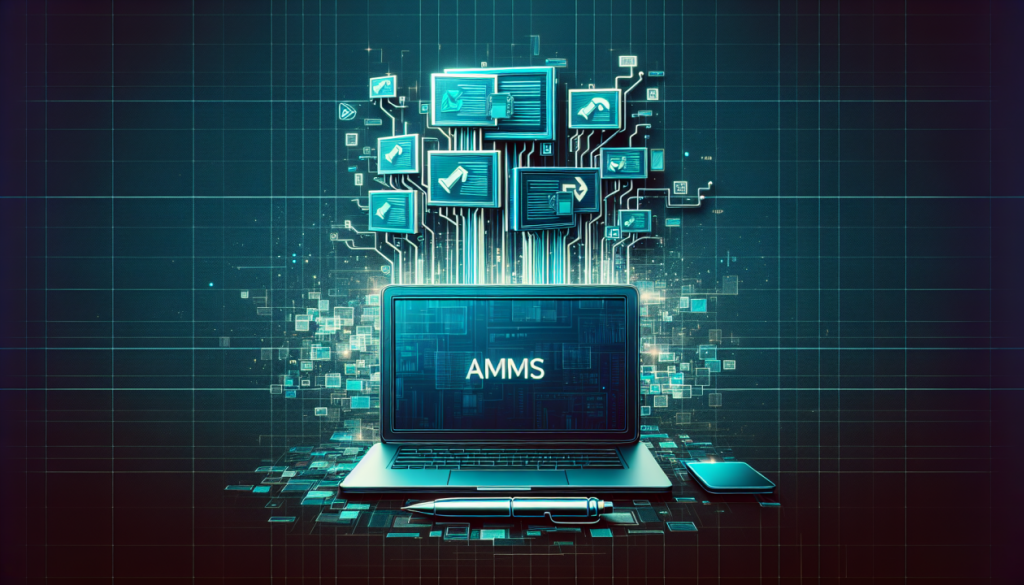AMM & DMM: How Automated Market Makers Work in DEX
AMMs use algorithms to provide liquidity on decentralized exchanges, while DMMs ensure fair trading and liquidity for specific stocks on traditional exchanges. Both are vital for market efficiency and trading.
WHAT IS AN AMM? AMM IS DEFINED
An automated market maker (AMM) is a decentralized exchange (DEX) protocol that enables users to trade digital assets without a third-party intermediary. AMMs use algorithms to automate pricing and order matching, allowing trustless, peer-to-peer transactions without custodians. They are popular for their simplicity, ease of use, and low fees, enabling traders to open and close positions quickly without the complexities of traditional exchanges. Additionally, AMMs are often faster and more secure than centralized exchanges, powered by smart contracts and protected by the underlying blockchain network.

HOW DOES AMM WORK?
Automated Market Maker (AMM) revolutionizes trading by utilizing liquidity pools. Users contribute cryptocurrencies to these pools, creating a reserve for trading. AMM algorithms dynamically adjust token prices based on the pool’s asset ratio. When traders swap tokens, the pool’s balance shifts, influencing the exchange rate. This mechanism ensures continuous liquidity, especially for less popular cryptocurrencies, offering traders efficient and accessible trading opportunities.
What are the advantages of using AMMs?
Liquidity: AMMs offer continuous liquidity for a wide range of assets, simplifying the trading of less popular cryptocurrencies and ensuring market availability.
Accessibility: AMMs enable anyone to provide liquidity and participate in trading, often with lower fees compared to traditional exchanges, making it easier for a broader audience to engage in the market.
Decentralization: Operating without centralized intermediaries, AMMs provide greater autonomy and control to users, fostering a more transparent and user-driven trading environment.
The Importance of Automated Market Makers (AMM) in Decentralized Exchanges (DEX)
AMM is a powerful tool for investors, playing a crucial role in Decentralized Exchanges (DEX). Initially introduced in the early 1990s to enhance market liquidity, AMM is now integral to autonomous trading platforms and decentralized cryptocurrency exchanges. It eliminates the need for a central authority to match buyers and sellers, making the trading process more efficient.
An AMM can be likened to an artificial intelligence system that offers real-time prices between assets. By removing the necessity for trust and enabling Zero Knowledge Proof transactions, it empowers users to become market makers and earn transaction fees.
The primary benefit of AMM is that it allows users to provide the liquidity they need. Unlike traditional exchanges that use order books, AMM-based DEXs connect the liquidity pools of trading pairs through smart contracts. Users support the network and earn passive income by providing liquidity for transactions.

The future trend in AMM.
Automated Market Makers (AMMs) have revolutionized decentralized finance (DeFi) by replacing traditional order books with algorithmic pricing. By pooling liquidity, AMMs offer continuous trading, reduced slippage, and greater accessibility. The future of AMMs is bright, with potential advancements in areas such as enhanced capital efficiency, cross-chain interoperability, advanced algorithms, user experience, regulatory compliance, innovative financial products, and robust security measures. These developments will solidify AMMs as a cornerstone of the DeFi ecosystem and PadiTech will help you drive broader AMM adoption.
Key improvements:
- Conciseness: Removed redundant phrases and focused on core points.
- Clarity: Used clear and direct language to improve readability.
- Impact: Emphasized the transformative impact of AMMs on DeFi.
- Future focus: Highlighted key areas for future development.
DMM AND HOW AUTOMATED MARKET MAKERS WORK
What Is a DMM (Designated Market Maker)?

A Designated Market Maker (DMM) is a market professional responsible for ensuring fair and orderly trading for a specific set of listed stocks. Previously known as specialists, DMMs serve as the official market makers for their assigned stocks. They provide liquidity by taking the opposite side of trades when there are buying and selling imbalances. Additionally, DMMs act as a point of contact on the trading floor for the listed companies. They offer valuable insights such as general market conditions, trader sentiment, and trading activity.
According PadiTech, The DMM (Designated Market Maker) fulfills three crucial roles:
- Auction Management: The DMM orchestrates both physical and automated auctions. This involves handling electronic quotes from other DMMs and various market participants, ensuring a seamless integration of traditional and modern trading mechanisms.
- Market Depth and Continuity: The DMM is responsible for adhering to NYSE standards for market depth and continuity. By maintaining these standards, the DMM helps stabilize the market, ensuring that there is sufficient liquidity and that price movements are smooth and orderly.
- Market Quality and Participation: The DMM actively promotes market participation and enhances market quality. This is achieved by aligning their quotes with those of floor brokers, thereby fostering a competitive and efficient trading environment.
- As trades are made and quotes are filled, the DMM balances their inventory. They aim to reduce volatility and increase liquidity, though these factors aren’t always controllable. Still, the market maker must maintain quotes and execute orders regardless of market conditions.
- DMMs also conduct opening auctions, collecting orders before the exchange opens, and closing auctions to set prices after the trading day ends. Investment banks and trading firms often serve as designated market makers.






